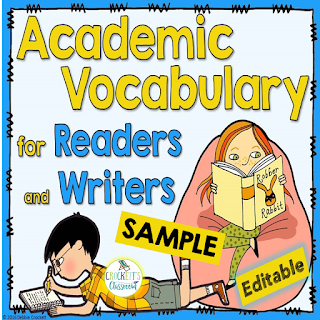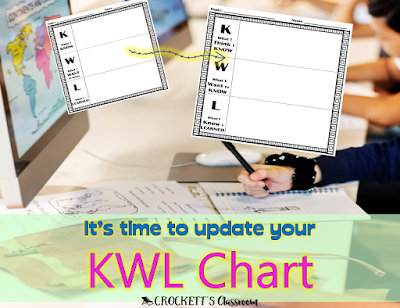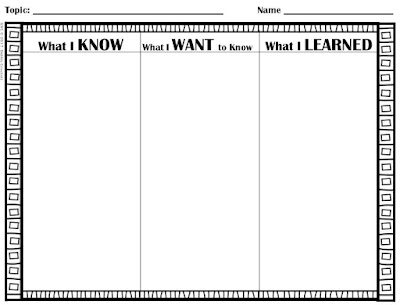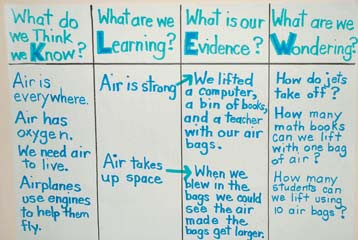Studies have shown that the size of a child’s vocabulary is an accurate predictor of academic achievement (Hirsch, 2013). However, academic vocabulary is more specific. It is the words used in an academic setting, including textbooks, class discussions, and standardized tests. These words are not learned through casual conversations in our daily lives. Students need direct instruction and focused lessons to master the words they encounter in an academic setting.
How many times did you wonder if your students truly understood what the question on a standardized was asking? Did you ever say to yourself, "If only I could explain the question differently, I'm sure my students would understand?" They may know the information, but the vocabulary in the question may have confused them. And we all know that if you don't understand what a question is asking, then how can you answer it. This is why teaching these essential words is important and making them part of your students’ everyday classroom vocabulary.
What are the most essential academic vocabulary words? Experts have said there are about 300 academic words that should be taught through direct instruction. Of course, you don’t teach them all at once. But these words should be taught over the course of a child’s school career through different content areas. Many schools have developed lists for each grade level and/or subject area. Check to see if your school has such a list.
Most kids get stuck on the verbs in test questions more often than the content nouns. So, this is a good place to start your academic vocabulary lessons. The resource I used the most to kick-start my vocabulary instruction is by Marilee Sprenger. Her wonderful book, Teaching the Critical Vocabulary of the Common Core (2013), gives definitions, examples, and suggested activities for 55 (verbs and nouns) of the most commonly used words in the Common Core Standards. I liked the first book so much that I bought her second book, 101 Strategies to Make Academic Vocabulary Stick.
No matter what your opinion is on standardized or objective-based tests, they seem to be here to stay for a while. So, we must ensure our students have the vocabulary skills to perform their best on these tests.
No matter what your opinion is on standardized or objective-based tests, they seem to be here to stay for a while. So, we must ensure our students have the vocabulary skills to perform their best on these tests.
One of my goals is to incorporate these verbs into my daily lessons. I wanted my kids to hear, see, and use these words as frequently as possible. That way, when they encountered them on the "big test" at the end of the year these verbs wouldn't cause any confusion. I wanted my students to be able to answer the content of the question without getting hung up on what the question was asking.
I decided to introduce each word with a short PowerPoint presentation. In the presentation, the word is defined, a sample question is answered, the word is applied to an everyday situation for a partner talk, and a short activity or printable that can be used in a class lesson.
Here's how I introduce the essential 29 verbs:
1. On the first day, I show just the first two slides (definition and sample question). We talk about the word and definition and answer the sample question. The sample questions I created go with well-known fairy tales. I wanted to ensure I used a text familiar to all my students. You could ask questions about your current read-aloud text.
2. On day two we review a couple of the verbs from previous lessons and then do the third slide for the new word (small group or partner talk). For the group or partner talk, they have three questions that use the verb in an everyday context. They can answer one, two, or all three of the questions. We also take time to share some of their discussions.
3. The next day would begin with a review, and then the fourth slide would be presented. The fourth slide is an activity that can be incorporated into a content lesson. The activity is usually a written task or thinking organizer.
4. On the last day of the week, we would add the word to our Word Jar journals. (See the link to this freebie below.)
Here's how I introduce the essential 29 verbs:
1. On the first day, I show just the first two slides (definition and sample question). We talk about the word and definition and answer the sample question. The sample questions I created go with well-known fairy tales. I wanted to ensure I used a text familiar to all my students. You could ask questions about your current read-aloud text.
2. On day two we review a couple of the verbs from previous lessons and then do the third slide for the new word (small group or partner talk). For the group or partner talk, they have three questions that use the verb in an everyday context. They can answer one, two, or all three of the questions. We also take time to share some of their discussions.
3. The next day would begin with a review, and then the fourth slide would be presented. The fourth slide is an activity that can be incorporated into a content lesson. The activity is usually a written task or thinking organizer.
4. On the last day of the week, we would add the word to our Word Jar journals. (See the link to this freebie below.)
At the end of the week, we add the word to our class display. These academic vocabulary words remain on display throughout the school year. The kids are often the first to point out that one of these words was on a test or academic task. Leaving them on display also reminds me to use those words in my directions and class discussions.
By taking the time to give my students this direct and focused instruction on academic vocabulary, I know they'll be better prepared for all academic tasks and standardized tests. Now, I'm much more confident my students won't be confused by what a test question is asking them to do. They'll be able to focus on the task and apply the skills they've mastered.
Would you like to try this in your classroom? Click on the image below to download a free sample of the Academic Vocabulary PowerPoint and printable resource I've described in this blog post.
Another great way to help your students master these words is to start a special journal, a journal just for words. At the beginning of the year, I love reading Donavan's Word Jar. It's a great book about a young boy who starts collecting words, and it inspires my kids to become word collectors themselves.
I created this freebie so you can also turn your class into word collectors! Word Jar: A Word Collection Journal




























